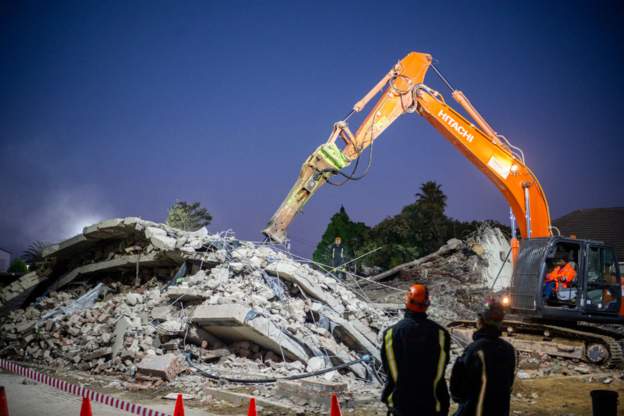OKERI NGUTJINAZO, TUYEIMO HAIDULA and SAKEUS IIKELANAMIBIA’S two largest state hospitals are battling with crippling shortages of vital medicines, equipment and qualified health professionals, amidst a growing demand for improved public healthcare.
An investigation into patient care at state health facilities by and South Africa-based Investigative Journalism Hub point to a system-wide problem at major state-owned hospitals – the Katutura Intermediate Hospital in Windhoek and the Oshakati State Hospital in northern Namibia.
Issues highlighted by hospital staff include a serious shortage of vital drugs, equipment as well as shortages of nurses at the Katutura Intermediate Hospital, leading to an over-reliance on interns.
Vital drugs which have been in short supply include those for high blood pressure and heart diseases. The situation, according to nurses, has often forced poor patients to acquire such medicines at expensive private pharmacies.
One patient suffering from high blood-pressure told on condition of anonymity in June that he could not get his medication at Katutura for more than three months because of the shortages.
“I am not on medical aid because I am unemployed, so I cannot afford (to buy) medicine from private pharmacies,” the patient explained.
At state hospitals, patients pay as little as N$10 for drugs that cost from N$150 at private pharmacies.
The public health sector also suffers from critical shortages of beds for the intensive care units.
At present, there are only 18 ICU beds in more than 350 facilities countrywide.
These challenges exist, despite the health ministry being the third-biggest recipient of the national budget behind the education and finance ministries, receiving close to N$6,9 billion during the 2019/20 financial year.
However, a large portion of the ministry’s budget – N$3,7 billion – goes to salaries and other benefits.
The government recently allocated N$210 million to the health ministry for the provision of additional medicines and clinical supplies, as well as for the recruitment of staff.
Health minister Kalumbi Shangula told the National Assembly in June that the government plans to buy 10 ICU beds for the Windhoek Central Hospital, but did not say how much they would cost. This plan is yet to be realised.
KATUTURA HOSPITAL
The Katutura Intermediate Hospital receives a large number of patients on a weekly basis because it serves as a primary referral centre.
However, was informed that the hospital is badly understaffed.
Nurses said they find it hard to cope with the huge influx of patients who have stab wounds and motor-vehicle accident victims, particularly on Fridays and month-ends.
They believe this can largely be attributed to inadequate state funding for recruitment.
A nurse who spoke to on condition of anonymity said they are forced to work extra hours, and that the hospital depends heavily on unqualified student nurses from tertiary institutions, such as the University of Namibia and the International University of Management, who do internships as a study requirement.
A person familiar with the matter claimed that full-time nurses often exploit the students, with some being forced to work odd hours.
The hospital, according to the nurses, on numerous occasions experiences shortages of drugs such as nevirapine syrup for HIV-positive children, and antibiotics such as penicillin V potassium and amoxicillin for the treatment of infections.
Sources said nurses have been giving HIV-positive children tablets instead of syrup, which should not be happening.
Insiders said sometimes when crucial medicines and materials run out, nurses use their own money to buy them from private pharmacies.
Essential materials in short supply include strips for testing diabetes, urine dipsticks, foley catheters for draining urine, cotton wool, and dressing ointments.
A nurse at this hospital said the pregnancy test kits currently in use are substandard, and take too long to give a reading.
reported last year that apart from the major hospitals, state clinics in Windhoek were also heavily understaffed, with nurses having to attend to up to 70 or 80 patients’ daily.
At the clinics, patients allegedly wait in long queues for up to four hours before seeing a nurse.
OSHAKATI HOSPITAL
Stay informed with The Namibian – your source for credible journalism. Get in-depth reporting and opinions for
only N$85 a month. Invest in journalism, invest in democracy –
Subscribe Now!





